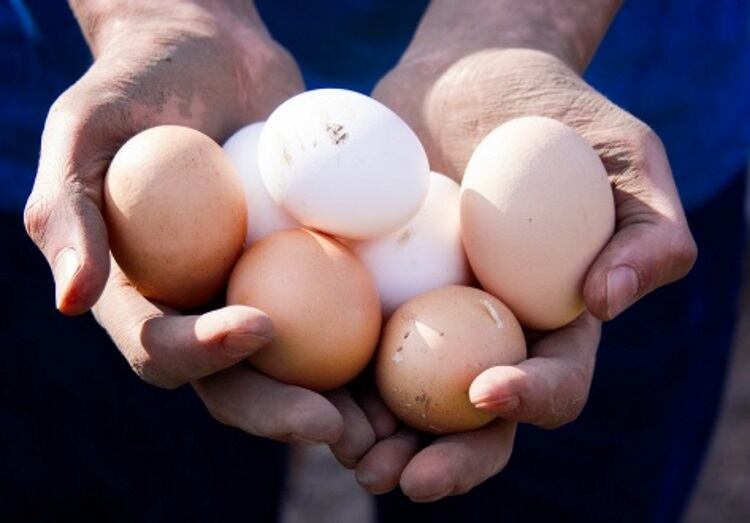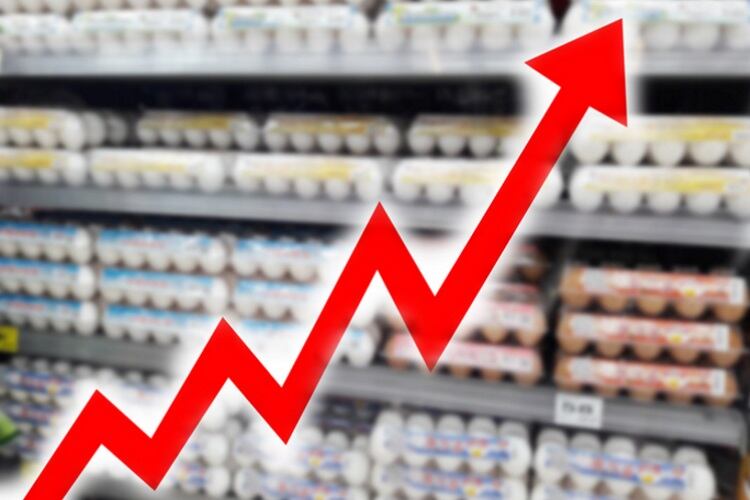The adage ‘don’t put all your eggs in one basket’ might never be truer. It’s obviously not a great idea to count on only one thing for success, but when it comes to the egg – a self-contained mini powerhouse of protein – there are not many alternatives currently available on the market that offer the same nutrition and functionality.
While the market for egg replacers and plant-based alternatives is starting to flourish, ‘real’ egg functionality, according to the American Egg Board, is difficult to fully replicate.
Eggs are an integral ingredient in baked goods, delivering everything from adhesion to aeration, to binding and browning. They also influence overall appearance, flavour, colour and texture, batter quality, moisture/water activity and overall likeability. When absent, a cake is fragile and forms a gummy mass in the mouth.

Walking on eggshells
Thanks to the perfect storm of runaway inflation, rising feed costs and the worst avian influenza outbreak in history, egg prices have reached record highs across the world and Rabobank expects the scenario to continue throughout 2023.
“Rabobank’s global egg price monitor reached a new record in Q1 2023, with the index now peaking above 250, which means prices are 2.5 times higher than the reference year of 2007, and have increased more than 100% since this time last year,” said Nan-Dirk Mulder, senior analyst, Animal Protein at Rabobank.
According to the market researcher, what makes the current situation unique is that it is a global phenomenon. Many markets – including Europe, Brazil, Mexico, the US, Japan, the Philippines and New Zealand – are seeing historic highs at the same time.
Feed has played a significant role, with global feed prices doubling between mid-2020 and mid-2022.
“Feed represents 60% to 70% of a layer farmer’s costs, so any change or uncertainty surrounding feed costs affects egg prices and supply,” said Mulder.
The world is currently in the grip of the worst bird flu outbreak in history. According to EFSA, over 50 million birds have been culled across the 37 affected countries, significantly impacting supply and layer number.
The global market is still experiencing disruptions due to COVID-19. The pandemic increased retail and farm-gate prices for table eggs by approximately 141% and 182%, respectively. In contrast, prices for breaking stock eggs – primarily used by the hospitality channel – fell by 67%.
In response, the US Food and Drug Administration (FDA) issued temporary exemptions from certain food safety standards for breaking stock egg producers wanting to sell into the retail table egg market. This reduced premiums for attributes like cage-free, vegetarian-fed and organic eggs by as much as 34%. This did not fully recover following the return to more ‘normal’ price dynamics, possibly signalling that consumer willingness to pay more for animal welfare and environmental sustainability has fallen.

Further regulations introducing production restrictions, changing consumer behaviour due to reduced spending power and tight supply caused by uncertainty also add to the mix, according to Mulder.
Combine these with the skyrocketing costs of energy – forecast to be 75% above their average over the past five years, according to the World Bank – and the tricky environment caused by the Russia-Ukraine conflict, and the price of eggs continues to cripple the food industry, especially the bakery sector.
Egg prices to stay high this year
According to Mulder, in general, egg prices are expected to stay relatively high throughout 2023, with some differences between countries.
“Prices will remain high in countries with persistent avian influenza pressure, restrictions on grandparent stock or breeding stock imports, financing challenges such as a large number of farms with limited access to finance or the US dollar, and countries undergoing regulatory changes, like Germany,” he said.
“Prices are expected to go down in countries and regions with extreme price peaks like the US, Europe and Japan, but likely not to the sorts of lows we have seen following other crises.”


